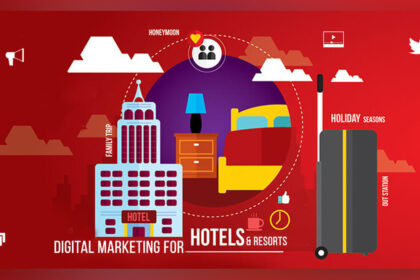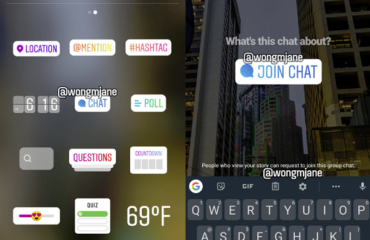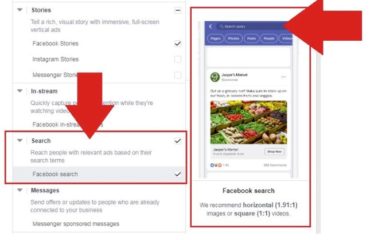
While well-known marketing strategies may still apply in some cases, changing consumer behavior requires new and effective strategies to gain traction and improve sales. It’s also extremely important to understand that the market is now driven by convenience and experiences, and change is necessary in order to keep up with the competition.
For example, millennials now account for two-thirds of the buying power in the world and recent statistics show that the average millennial spends more than five hours per day on social media. With this in mind, hotels that fail to produce content on Facebook, Instagram, and other social platforms are practically invisible and when you consider the buying power above, this can be extremely detrimental to hotel sales and reputation.
In this article, we take a look at some of the intricacies involved with hotel digital marketing and the specific actions you can take to get ahead in the industry.
How hotels market?
Successful hotels will have a digital marketing strategy that takes in all the points in this article. While some experiences may be digital, others are much more personal and the common trend across these initiatives is that the customer is always right.
Either way, it’s not simply a case of doing a little here and there but rather about creating a marketing blueprint that will help the hotel excel.
Now, let’s dive into twelve actionable tips for hotel digital marketing in 2019:
2021 Guide to hotel digital marketing
1. You need an amazing website to support your hotel digital marketing efforts
Many visitors jump on Hotels.com or one of the many other booking engines to find the best value deals. However, you will also know that many online users will then search for the hotel website for either more information or an even better price for the night. With this in mind, you absolutely need an attractive website for the best results. And a great website is crucial whether you work in the hotel business, the healthcare digital business, the financial business, the IT business or any other business out there.
Here are just a few more benefits to having an amazing website:
Location – You can elaborate on the location and outline the features in the area as opposed to just explaining how a tourist can come to your hotel. In most instances, location is the first way in which a hotel can differentiate itself from the competition.
Voice – Booking engines are generic by nature but having your own website is an opportunity for hotels to speak directly to the customer. In other words, you can keep things more personal or conversational and “speak their language” in order to establish a relationship with potential customers.
Features – Why might customers choose your hotel over any other? Having a dedicated website enables you to outline the most attractive features that set you apart from any other hotel. As you know, booking engines rarely take time to highlight these aspects in the way that they probably should.
SEO – Search engine optimization is essential for long term success and hotel digital marketing will increasingly rely on this effort to produce valuable information for the end user. With your own website, you can improve keywords and social media links to booking search rankings and over time, this can reduce a hotel’s dependence on such engines.
Content marketing seems all the rage right now but there is good reason for this focus. In other words, content is the best way to drive sustainable traffic to hotel listings and creating this content is undoubtedly the most effective strategy.
As a rule, there are two forms of content – images and descriptions:
Images
You need a professional photographer for a hotel website and anything less just won’t do. High quality images tell a story and professional photographers know how to capture this story in every shot. When you think about it, these images are the face of your brand and every booking engine will also use these photographs so it makes sense to put time, effort, and money into making the right first impression.
Descriptions
Whether the hotel breakfast is the stuff of legend or each bedroom offers picturesque views from the balcony, you need broadcast these details loud and clear. Luxury bedding, friendly staff, and saunas are all features that you are likely proud of and that needs to be communicated to potential guests.
Simply put, your guests won’t know what you don’t tell them and these features are what most people think about when it comes to choosing the best option for an upcoming stay.
3. Meta-search marketing
Did you know that more than 70% of hotel bookings come from online travel agencies (OTA) like Kayak, Priceline, or Expedia? It’s true, and meta search marketing is the best way to increase the number of direct bookings on your hotel website. In fact, using a meta search strategy for hotel digital marketing can drastically reduce the need for these OTAs and allow the hotel to create a much more powerful sales funnel.
More than 70% of hotel bookings come from online travel agencies (OTA) like Kayak, Priceline, or Expedia.CLICK TO TWEET
Just so you know, meta-search marketing filters the availability and rates from hotels and shows these results in one central place. Example, you go to expedia.com and type in Chicago hotels. You get to see all hotels listed on Expedia for Chicago. For this reason, a hotel can set regular advertising campaigns and use click-based ads to expose their weekly or monthly deals to millions of online users.
At the same time, attaining positive reviews and social signals is just as important for this process, so hotels should frequently remind guests to leave reviews or positive comments about their experience.
4. Manage all online reviews & reputation
As you may know, Tripadvisor has come under scrutiny in recent years due to fake reviews and rather sinister activities – and has also viciously retaliated against offenders which has resulted in indictments and prison time.
However, reputation is everything in the hotel industry and online reviews are still the only way to gain an independent insight into a hotel experience.
While hundreds of five star reviews will inevitably result in further sales, even one bad review can severely damage the reputation of a hotel.
For this reason, it’s important to ask customers for positive reviews and leave reminders of this request at every turn. You should also share these positive reviews on social media and take time to respond with appreciation for these reviews, demonstrating your attention.
Finally, responding to negative reviews is equally important for online reputation management. That is to say, this is your chance to apologize and improve, and alleviate any concerns that these review might pose to future guests.
5. SEO for hotel digital marketing
Hotel digital marketing is largely dependent on SEO and this can be split into two categories – on-site and off-site SEO. While on-site SEO is a lot faster and easier to implement, it should be known that off-site SEO is often the most effective way to gain traction online.
On-site SEO – On-site SEO refers to how you can optimize elements on a hotel website to increase online visibility. You can use this strategy to improve pages, posts, images, and even the structure of the website. However, keyword strategy is arguably the most important aspect of on-site SEO and this can dramatically improve the amount of traction and visitors a hotel website will receive.
Off-site SEO – Off-site SEO is a process that most often involves building external backlinks to a hotel website from other online resources and directories. Social shares signals also count toward this effort but guest posts, sponsored posts, and referrals are some of the most common ways to improve off-site SEO.
6. Focus on local SEO
Any type of SEO is a good thing but local SEO can produce immediate results for a hotel website. While many people assume local SEO merely tends to optimizing images, descriptions, tags, or titles on a website, there is much more to this process.
For example, Yelp, Tripadvisor, and other listing websites hold important information about your website.
You can start your local SEO efforts by optimizing and improving the details on these listings. Also, Google My Business is increasingly effective in terms of ranking for local search queries and you should ensure every aspect of this profile is complete to take advantage of this opportunity.
On the other hand, you can also focus on local content and create posts or videos about activities, events or attractions in the nearby area. With this in mind, local SEO can help give your hotel website a greater sense of relevance for search queries and this authority is essential for hotel digital marketing.
Any type of SEO is a good thing but local SEO can produce immediate results for a hotel website.CLICK TO TWEET
7. How do hotels promote on social media?
Many hotel owners forget that Facebook is still the king of social media and the ultimate machine for driving hotel digital marketing.
Positive reviews – If you think about it, the review sections is placed right at the top of a Facebook page but many hotels seem to ignore this feature entirely. Whether you have a stack of reviews on Tripadvisor or elsewhere, positive reviews on this section will instill confidence and trust in potential guests.
Facebook sales – Facebook now enables business owners to take bookings and even payments through the platform. In fact, Trivago recently awarded a resort in Mexico for their outstanding social media campaigns which resulted in an especially large number of direct bookings via Facebook.
Twitter – Although often overlooked for Instagram or Facebook, Twitter is a fantastic tool for reaching a very specific target market. Trivago also awarded Cedar Manor in the UK for how the hotel manages to drive so much traffic by using hashtags to highlight events, news, and attractions in the local area.
Instagram – Needless to say, Instagram offers hotels the opportunity to reach an incredibly big market and with the right images, this is another obvious way to demonstrate the high quality of the hotel.
People – On the other hand, social media is all about the people and some of the best hotel digital marketing strategies are those which involve the staff and people behind the hotel. After all, stories are incredibly effective in content marketing and telling stories about the staff is a great way to create a meaningful relationship between the hotel and potential guests.
8. Social listening for hotels
In case you might be asking yourself, social listening refers to the hotel digital marketing strategy that uses trackers and tools to alert the business about mentions online.
But why is this important?
Well, this is your chance to interact with guests and show future customers how much you care. At the same time, you cannot respond to what you do not know about and the following platforms can help businesses know when they receive a mention in the online world:
Hootsuite – Although many people use Hootsuite to automate social media posts, you can also use the dashboard to check for mentions on Facebook, Instagram, Youtube, and most major platforms.
Curalate – Curalate is all about improving the selling process for hotels and this platform enables you to connect social media content to your website, while checking for mentions in the process.
Sprout Social – Forming meaningful connections with guests is highly important for a hotel and Sprout Social offers many solutions which can pinpoint interactions online relating to your brand.
Buzzsumo – BuzzSumo is fantastic monitoring tool which helps you find content on social media relating to your hotel. In fact, you can even enter the domain and links should appear instantaneously.
9. Try out Facebook’s Dynamic Ads for hotels
In case you might be asking yourself, Facebook Ads are far from “dead” and many businesses continue to focus the majority of their marketing budget on this avenue. In fact, Wish is now one of the largest e-commerce stores in the world with five million users and this platform was built almost entirely using Facebook Ads over the past few years.
Travel Ads is a new initiative which allows hotels to show their ads across Facebook and instagram to people who are most likely to travel. For example, if a user is browsing hotels and yet to make a booking, travel ads will place your hotel in front of them for specific dates and prices.
As far as hotel digital marketing goes, Facebook’s Dynamic Ads is certainly one of the most exciting strategies to reach the industry in recent years.
10. Email marketing for hotels
Email marketing is increasingly important in the hotel industry and this is especially true at a time when ads and social media marketing is so common. At the same time, this is also still one of the most affordable ways to reach an audience and one that requires no upfront cost.
However, it’s important to take the right approach for hotel digital marketing and here are just three of several important considerations to keep in mind:
Segmentation – You cannot start an email marketing campaign without a robust plan and defining your audience is extremely important to ensure your emails land in the right place. In other words, you cannot just send everyone the same email and expect success, and your database must be divided into categories of interest.
Grab attention – It should go without saying but generic content has no place in email marketing and you will need to use deals, discounts, or information about local events to grab the attention of your ideal users. Either way, there simply must be genuine and unique value in the email to have any impact.
Nurture respect – You should really treat your customers like royalty and seek to create a meaningful relationship that will make them want to open your emails in the first place. You should also welcome feedback from these emails and try to establish precisely what the customer wants to hear from you.
Needless to say, these are just a few things to keep in mind but the overall message here is that email marketing is effective when you take the right approach.
11. Have remarketing enabled online (Do NOT ignore this strategy!)
Hotel remarketing is a process that helps hotels engage with potential customers that may have visited the hotel website and abandoned their search. That is to say, you can use this strategy to get these users to revisit the website and make a purchase at the second time of asking. If you think about it, this is extremely effective because you already know that the user is ready to make a purchase.
But how can you use remarking as part of your hotel digital marketing strategy?
Remarketing ads will simply target previous users with discounts or deals to re-engage these customers.
In this sense, your ad will pop up in the users newsfeed and tempt them with an improved offer. As a rule, it’s important for this campaign to offer a lot of value and the right keywords need to be used to reach the largest possible audience.
Keep in mind, it’s just as important to be subtle rather than “in your face” and the value on offer should hopefully be enough to entice this customer to book the hotel.
12. Emerging technologies
New technologies are proving extremely powerful for the hotel industry with chatbots in particular making a significant impact. As you may know, chatbots are created by developers and have various functions which enhance the performance and user experience on a website.
There are two types of chat bots that can be used for hotel digital marketing – chatbots for the hotel website and chat bots for the hotel room via Alexa.
For many people, they will know that chat bots can successfully engage with customers via messenger and extract critical data that can be used to follow up later on by the hotel.
On the other hand, voice-enabled devices can use Alexa to improve the hotel experience and provide valuable assistance to guests, just like the Amazon Echo does in the kitchen.
Final thoughts
As you can see, hotel digital marketing is a vast topic but the above tips are some of the most practical strategies and solutions for getting ahead in the industry.
While some methods require financial investment, much of this process is down to knowledge or experience, and having a solid marketing plan is usually enough to ensure your hotel is improving at every turn and moving in the right direction.




